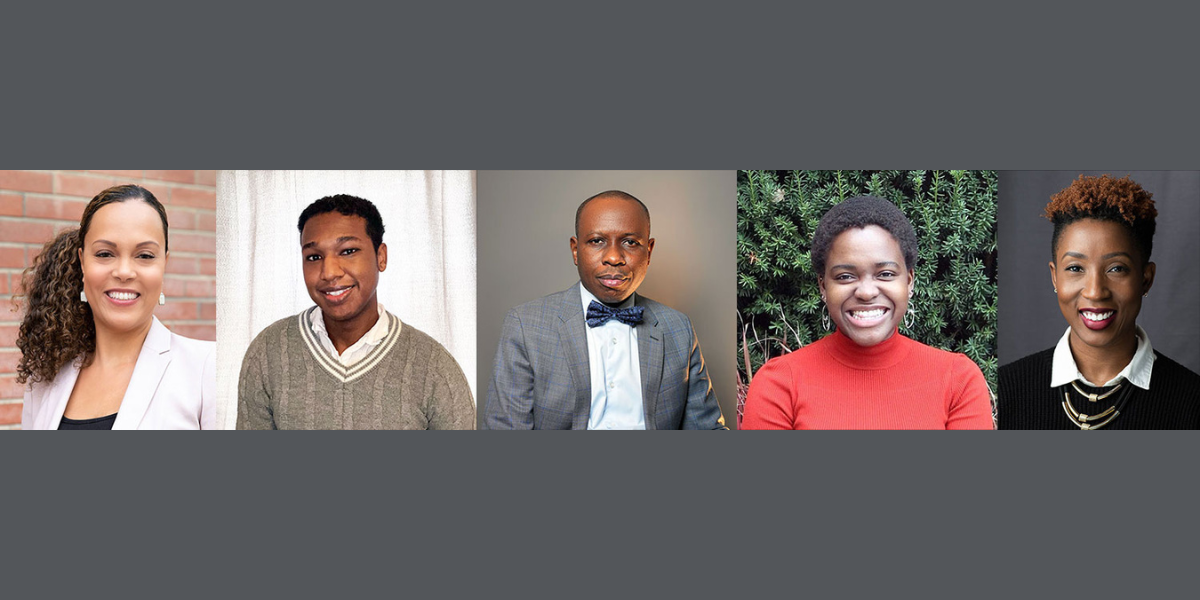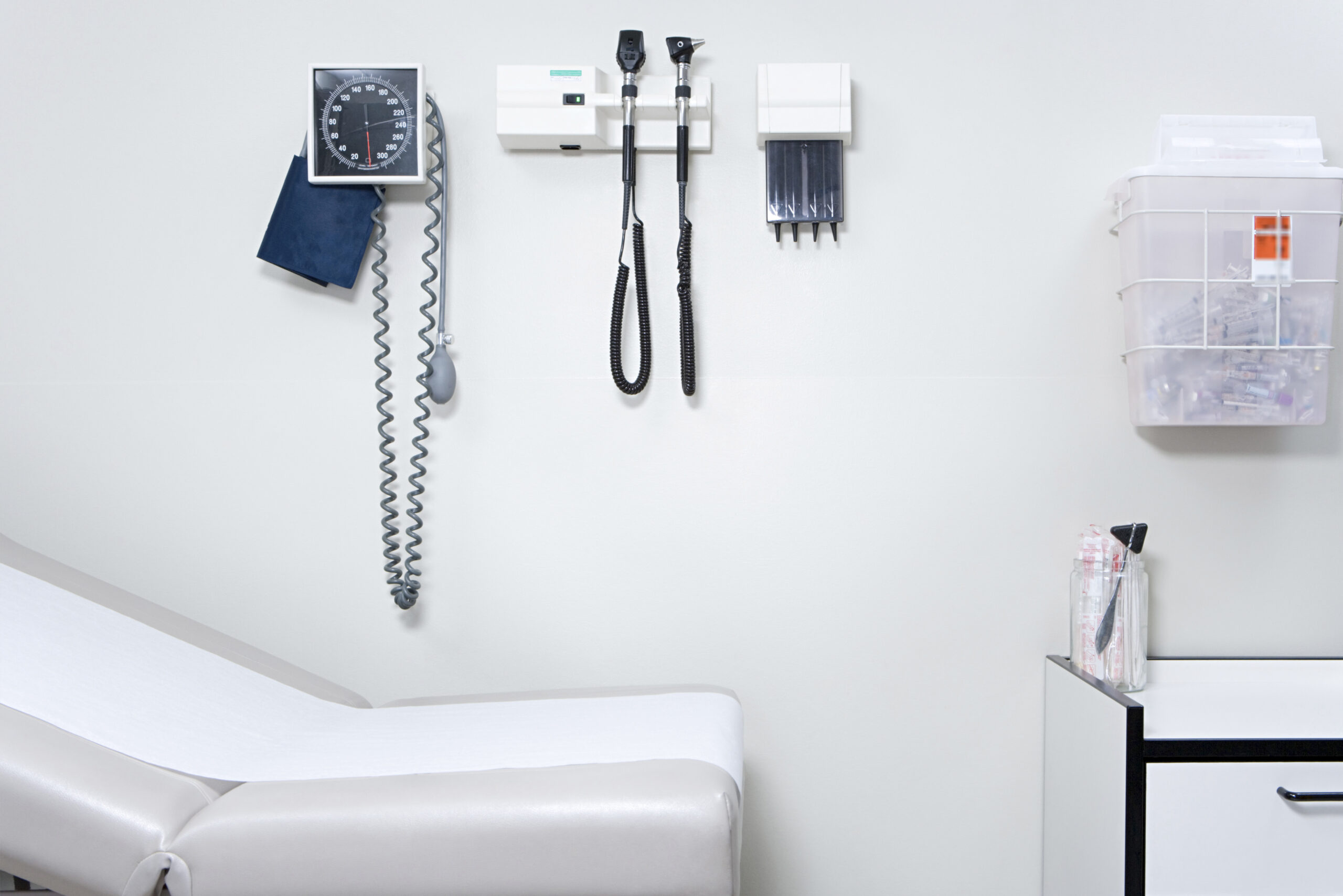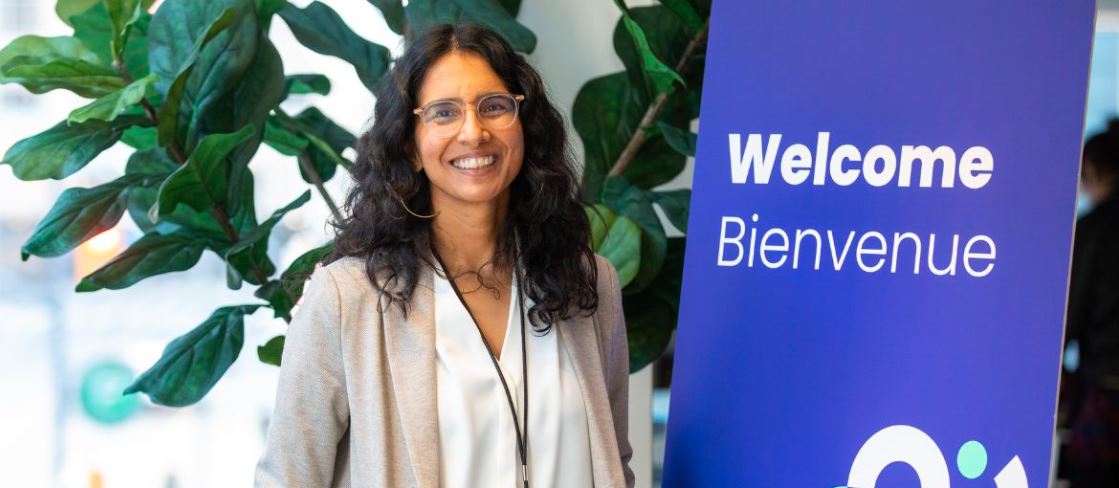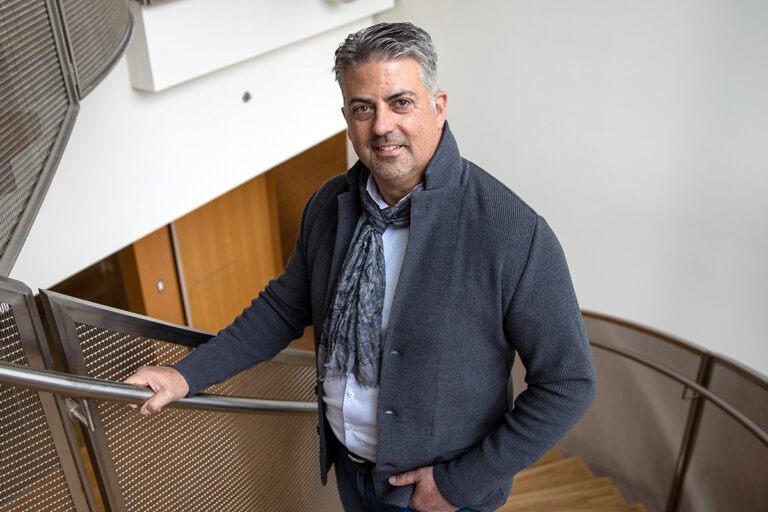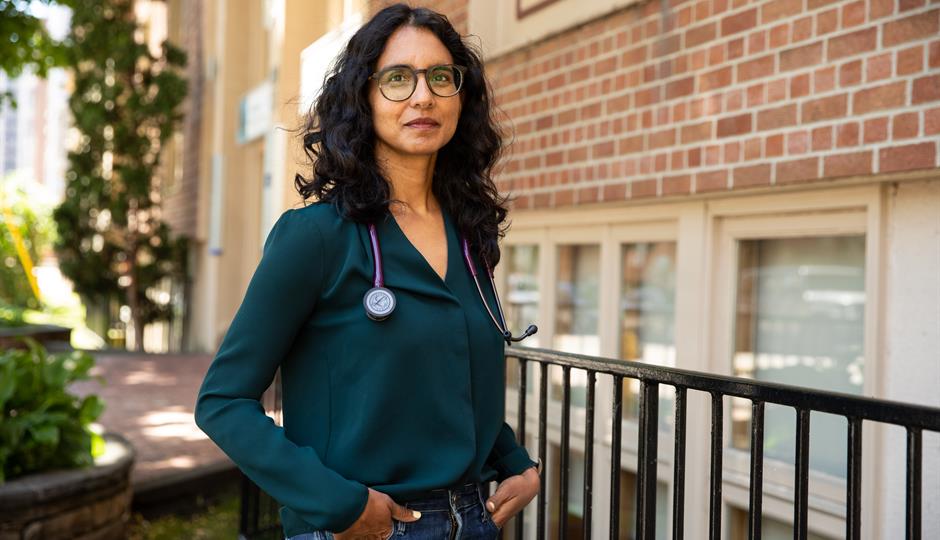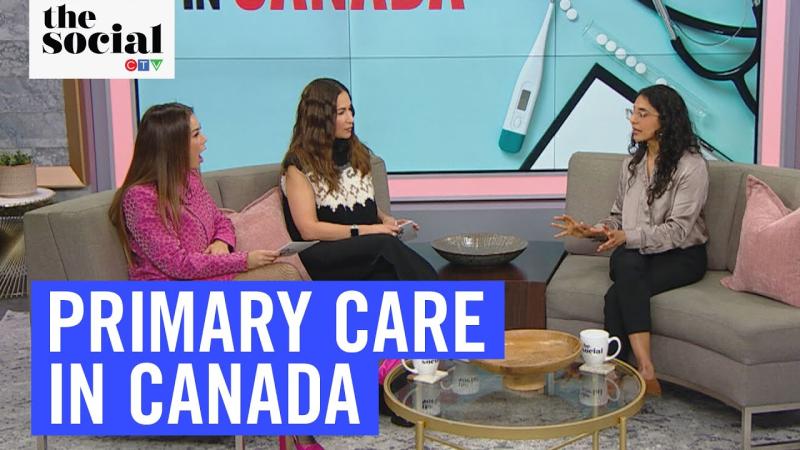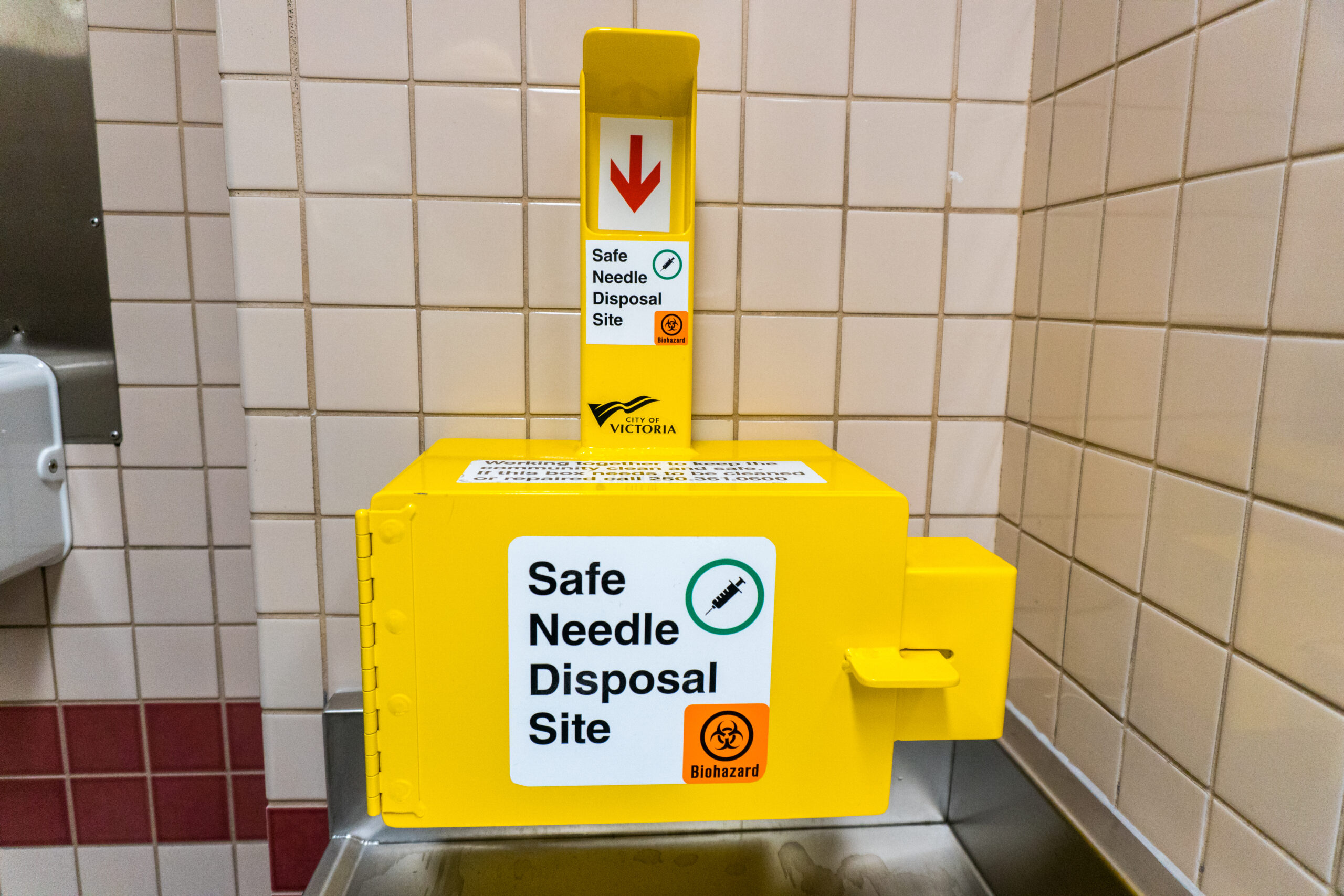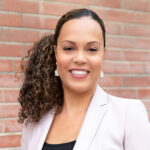
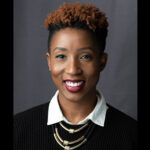
In celebration of Black History Month, Denese Frans-Joseph (MAP Research Equity Specialist) and Christina Salmon (MAP Senior Manager of Research Programs and Partnerships) sat down with Wale Ajiboye, Jolen Kayseas and Martha Taylor to talk about their inspirations, their work at MAP and their advice for the next generation of Black researchers and health equity leaders.
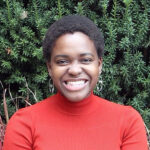
Martha Taylor (she/her) is the coordinator for the MAP Summer Student Program and co-leads MAP’s Anti-Racism and Equity Advisory (AREA) group. She is an African woman who graduated from Trinity College at the University of Toronto with an Honours Bachelor of Arts in Health Studies, German and Portuguese. She has a deep passion for racial (health) equity work and working with communities. Her goal is to become a doctor.
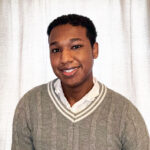
Jolen Kayseas (he/him) is an Afro-Indigenous Research Coordinator at MAP. He has contributed to research initiatives addressing health outcomes for marginalized people, including people who use drugs and people experiencing homelessness, and has contributed to developing actionable program recommendations. Jolen is currently volunteering in Accra, Ghana, working on a project focused on educational outcomes and sustainable learning environments.
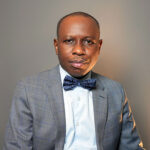
Dr. Wale Ajiboye (he/him) is a senior research associate and adjunct scientist at MAP. Wale’s research seeks to understand the behavioral, biomedical, social and structural determinants of HIV vulnerabilities; and to develop, adapt, test, implement and scale-up strategies to reduce the rates of HIV infection in Black communities in Canada and the Global South.
Denese Frans-Joseph: Thank you so much for joining us today. To start, I would love to hear from all three of you about what inspired you to pursue a career in urban health research. How does your work contribute to advancing health equity?

Martha Taylor: I came to Canada as a child refugee at the age of seven, which ultimately laid the foundation for my interest in urban health research. I watched my parents struggle to navigate the Canadian healthcare system, but it wasn’t until I got older that I came to understand how my family’s experience wasn’t unique, but was rather the result of a settler society built on anti-Black and anti-Indigenous racism. As a result, I’ve always gravitated towards work and volunteer opportunities that challenge racial health inequities. Currently at MAP, my work contributes to advancing racial health equity in two ways. As the co-lead for MAP’s Anti-Racism and Equity Advisory group, called AREA, working with my wonderful co-lead Denese and our AREA members ensures I help to inform how racial equity is incorporated into MAP’s strategic goals, policies and practices. And as the coordinator for the MAP Summer Student Program, I work with our Summer Student Working Group to ensure that Black, Indigenous and racialized undergraduate students have the opportunity to experience research in a safe and supportive environment. I think this is particularly important because traditional research environments lack representation, so I’m happy to be in a position where I can inspire students to see and know that research doesn’t have a colour.

Jolen Kayseas: When I started my undergrad in 2018 at TMU, I didn’t know what I wanted to go to school for. I just knew that I wanted to learn, read as much as I can, and understand the world as a new adult. I started in linguistics and as an ethnography researcher. And then in my second year, COVID hit. We all saw how it affected everyone, but especially us Black people, and the disparities that Black people face compared to non-Black people. I’ve always been into social justice, equity and asking, ‘Why? Why are things like this? Why are there disadvantages for certain identities?’ That’s when I knew I wanted to do something within the social determinants of health. So I reached out to the Indigenous Office at TMU and asked if there are any opportunities to work or volunteer, in any capacity, in this area. And lo and behold, MAP’s first, pilot Summer Student Program was starting soon, and they encouraged me to apply. I applied, and I started on Stephen Hwang‘s team, working with Jesse Jenkinson on a project called Ku-gaa-gii pimitizi-win: Vaccine uptake, confidence and hesitancy among people experiencing homelessness in Toronto. It was that summer that I really knew that I wanted to work in urban health research and continue asking why, and pushing back against people saying, ‘Oh, this is just how it is.’ I’m here still, four years later, and I’ve loved every project I’ve been a part of. I’ve learned so much from everybody that I’ve come across, whether that be in community expert groups, interviewing folks, working alongside people, or going to events at St. Michael’s Hospital. I hope to continue working in urban health research as long as I can.

Wale Ajiboye: My background is in pharmacy, and I worked as a clinical pharmacist for several years taking care of different types of patients, including those with advanced AIDS. It was very painful to see people go through a lot when there are effective medications that can be used to treat and to prevent HIV infection. I didn’t have a lot of experience with HIV prevention, but I felt that I could do more to address HIV-related disparities in Black communities and in Black people generally, by focusing on HIV prevention rather than waiting to do clinical treatment for those that already have the infection. After I got my PhD and relocated to Canada, I felt this would be a good opportunity for me to be involved in urban health rather than clinical work. I was fortunate to meet Dr. LaRon Nelson, and realized that the work he was doing aligned with my interest. I was really, really excited, because it was a perfect opportunity for me. Even though I started as a volunteer and worked for almost one year as a volunteer, I did it passionately because it was something that I really love to do: preventing HIV infection through the use of PrEP, a medication for preventing HIV infection. Since then, our work has helped to promote equity by reducing HIV-related disparities, because our work is focused on designing and implementing strategies that can increase the access, uptake and use of HIV prevention tools.
Christina Salmon: Could you share a project or research initiative at MAP that you’re particularly proud of, and its impact on the communities you serve?

Martha Taylor: Without a doubt, I’m proud of the MAP Summer Student Program and our collaboration with the Community of Support – Research Application Support Initiative. Sixty-six per cent of the students that participated in last year’s program are Black which was absolutely marvelous, since it exemplified the importance of intentional collaborations and initiatives that target communities that are historically underserved. I’ll never forget the happiness I felt after our most recent research rounds. One of our students told a member of her team that our program showed her that research didn’t have a face. I believe this demonstrates MAP’s commitment to increasing representation and I hope this program is one that continues to grow and flourish.

Jolen Kayseas: I’ve worked on a few projects, but one that really, was really amazing to be a part of was called People experiencing marginalization and the effects of the COVID-19 pandemic response (MARCO). That project had so many different parts to it, but the question that I worked on was, how were issues of racism addressed during the COVID-19 pandemic? I worked alongside Michelle Firestone, who is a great ally and advocate of the Black community. It was really interesting because the data was being collected in the summer of 2021 when George Floyd was murdered and Black Lives Matter was at the forefront. This particular study was an amazing experience, because Michelle really let me drive the research and the writing, and help with the analysis to make sure that was impactful. We found that within that research, in the data that we collected, a lot of institutions were confronting anti-Black racism, but they weren’t really understanding how their policies might directly and indirectly contribute to racism that both employees and patients experience. A lot of organizations also leaned on their employees to deal with institutional racism. I’m very proud of that study and the work that we did.

Wale Ajiboye: I led the adaptation and pilot implementation of an intervention, Culturally Responsive HIV Prevention Services for Black Communities in Canada. The goal is to develop the capacity of HIV prevention providers on how to provide culturally competent services. Upon piloting the intervention, we heard from healthcare providers that we helped them identify some of their practices that they did not know were actually in conflict with the culture of Black people. I’ll give an example. One of the providers mentioned that when you are late for an appointment, 15 minutes late, then you are not going to have access to your provider. But through the capacity building, they realized that there are many structural barriers that Black people face in accessing health care, and structuring their appointment system that way is very problematic. They realized it’s better for them to leave it open, to remove that barrier. After eight months, we did a post-intervention survey, and they told us that making those adjustments really helped to be able to increase the number of Black folks that were retained in their care. So that was an interesting initiative, I think that’s something that I am really proud of. I’m currently partnering with OHTN to scale up this intervention among several providers.
Denese Frans-Joseph: I’m so happy to hear how effective your projects have been, you should feel very proud of those impacts. Our next question is about healthcare. Black communities continue to experience systemic barriers in healthcare. From your perspective, what are some of the biggest challenges or pressing issues, and how can research help to address these issues?

Martha Taylor: I believe that one of the most pressing issues that Black communities experience within the Canadian healthcare system is bias from healthcare professionals, which contributes to poor health outcomes for Black communities. We simply aren’t afforded safety within the healthcare system. For those of us who are able to, we often have to advocate for our health concerns to be heard. But what about those of us who can’t advocate for ourselves? I think this racial bias can be addressed through education that takes healthcare professionals on a journey to unlearn anti-Black racism and adopt racially just practices. The Black Health Education Collaborative launched their Black Health Primer in 2024 which aims to do just that. I contributed to its development, editing and copyediting!

Jolen Kayseas: I think as Black people, we know that there’s a long history of medical racism and how that has led to very deep mistrust of medicine, healthcare facilities, and research in general, for example the Tuskegee Syphilis Study. I also think of the social determinants of health and things like redlining that go on within Canada. That also includes inequitable structures like barriers to employment, housing and food security that have greater impacts on Black folks’ health than others. Unfortunately, I don’t think they’ll ever go away, but there are definitely ways that we can mitigate it. Like community based participatory research. That’s one thing that I’m really happy to be involved with on this team. They really are advocates for having researchers with lived experiences join in on not only the data collection, but also contributing their thoughts around analysis and mitigating biases. I also truly believe that we need to have culturally competent training and policies led by Black leaders, Black people and allies to inform healthcare centres and also research centres on how to integrate cultural competence into patient and family care.

Wale Ajiboye: Our healthcare system is set up in a way that sometimes promotes anti-Black racism. Once that is present, it becomes very challenging for Black folks to access or be retained in care. I’ve had some personal experience as an individual, and I will share this example. I went to see my family physician. And I told her my complaint, and she just said, ‘Okay, I’m going to write this medication for you.’ As a healthcare provider myself, I know that there are at least two major investigations or tests that my physician was supposed to do, but she didn’t bother. I asked her about it, and then she realized that I had an understanding of my condition. She then said, ‘Oh okay, yeah, I will send you to do this and do that, and afterwards we can talk once I have the result.’ So that made me to lose respect, and lose trust in in the provider because I felt maybe it was because of my skin colour. I didn’t feel that I was actually adequately taken care of. Those are the types of things that I hear from a lot of members of the Black community. So my research is addressing that, by developing interventions that address anti-Black racism.
Christina Salmon: How has your identity and lived experience as a Black professional shaped your approach to research and advocacy?

Martha Taylor: My experience and identity as a Black professional has shaped my approach to research and advocacy because I always strive to centre the communities I’m working with. Time and time again, we have seen the harm that’s caused when the needs and best interests of communities aren’t prioritized, much less considered. So when I engage in research or advocacy work, I never assume that I know more than the communities I’m working with. I’m there to first understand their concerns and needs, and see how I can work to support and amplify their voices. Communities you are aiming to serve should still have their agency.

Jolen Kayseas: I think lived experience and different intersectionalities are such vital forms of knowledge, I believe approaches such as community-led research can drive equitable changes. So I want to use my lived experience to really drive change for Black people, for Indigenous people and for future generations. I also feel like research often focuses on disparities and hardships that Black people face, and I’m an advocate for highlighting the resilience and the beauty and strength that we have despite the adversities.

Wale Ajiboye: I think for me, lived experience has helped me to approach my work with passion and knowledge. Passion from the perspective of a particular lived experience that I had several years ago, losing a community member, a church member, to HIV. It was based on medical mistrust, because initially he was on HIV medication, and after a while, I don’t know what happened, he stopped taking his medications. And eventually he died. So that really instilled passion in me to ensure that at least people are adequately and well informed in terms of the benefits of HIV prevention tools and also HIV treatment. My lived experience and my identity have helped me to improve the design of interventions to improve uptake of HIV prevention tools. Usually, the mainstream research approach is from the perspective of whiteness. And most times they don’t take cognizance of the fact that Black people have different contexts in which health disparities take place. If you design interventions from the lens of white people, it is not going to work for Black people. You need to understand the context in which disparities develop in Black people, and that it is not so much behavioral, it is more systemic and structural. Having that lived experience helps me to be able to design interventions that work specifically for Black people. It’s been very exciting, using my identity and my deep experience to inform the work that I do.
Denese Frans-Joseph: Wale, I’m so sorry to hear about the loss of your church member. I can connect with that because it’s usually a personal experience for many of us, or it is our lived experience that pushes us to do this advocacy work and do this research to ensure that our communities don’t have to experience the barriers and experiences that we know are so common, right? Thank you for sharing that. The next question I have is around joy. Black joy is a powerful form of resistance and resilience. What brings you joy and how do you incorporate it into your work and daily life?

Martha Taylor: I must say that Black joy is a term I absolutely love, because it truly is our ultimate form of resistance and defiance in the face of systems that have been designed to make us feel anything but joy. Many things in life bring me joy, I’m a very happy person. I love baking, cooking, watching anime, going out with friends, exploring new parts of Toronto, buying shoes, writing fiction and appreciating beauty in everyday life. I believe I incorporate this in my work life because I’ve been told by colleagues that I’m a very sunny and happy person. My joy is something that I carry everywhere I go.

Jolen Kayseas: When I was thinking of that question, I just kept thinking of the Grammys that just happened. You know, a Black woman, Doechii, winning Rap Album of the Year, and Beyonce winning Album of the Year for a country album. Just celebrating Black excellence and creativity and being able to connect with other Black people through that. I feel like we all have a connection based on what we go through living life as Black people. We’re able to empathize with each other and understand each other just based on that. So even just being here in Ghana, I’m with other Black researchers, we’re a completely Black team doing research concerning Ghanaian youth and education. It’s just so great to be surrounded by Black people. That just brings me a lot of joy.

Wale Ajiboye: I think what brings me joy is knowing that what I do ultimately solves problems and also helps Black people and society in general. It’s not just only about Black community, there’s no reason why everybody cannot thrive together. That brings me joy and a lot of energy.
Christina Salmon: I loved your answers so much, thank you. This is our last question. What advice would you give to the next generation of Black researchers and health equity leaders?

Martha Taylor: To the next generation of Black researchers and health equity leaders: we need you! You belong here! Your presence, your voice, your experiences are valid and needed. Hold your head up high and know you are worth it. Your insights are needed. You deserve to take up space. Find your community and your allies, they will help to support you especially when the going gets hard. I’m always rooting for your success!

Jolen Kayseas: I really do believe in challenging the status quo and pushing back and not being afraid to ask questions. What things do you feel are inequitable, pertaining to policies and frameworks? And also promoting rest. You don’t always have to be on the front line. You have allies. I think we were talking about this a couple of months ago, Christina, when you told me that – we have allies who can use their privileges to push change. That really stuck with me. Seek community members, mentors, allies who share the same values. If it wasn’t for my network, I don’t know what I’d be doing right now. My network really helped me navigate challenging times and challenges that I faced, and being able to reach out to folks who understand. So I definitely think that’s important. And being unapologetically Black as well!

Wale Ajiboye: Yeah, thank you, Jolen. Regarding Black researchers, from my own experience, I think the first thing is that you should know what you want and stick with it. There will be so many distractions because of the systemic barriers. For Black researchers, there is this tendency to be distracted and to lose focus. You know, chasing what you think may be the best opportunities for you to break the systemic or the structural barriers. You must first of all identify what you want, and let it be from your own internal reflection and not to just what the opportunity that is available out there, otherwise you will just become a pawn and less effective. So let it be from something that is within you. Once you identify what you want, I think the next thing is to try and communicate it to people around you, because as a Black researcher, you are likely to face systemic barriers. You have to keep talking. You have to keep engaging and to just let people know what you want. The other thing is patience. I think that’s very generic to everybody. You’ve got to be patient, but not sluggish. Persistence. You are patient, but you are not giving up. The last one is to avoid disruptions, because there will be so many disruptions, and don’t let whatever structural barriers you face build up sentiment and hatred within you, because that sucks out energy. Just be focused on your goal and keep preparing yourself, because those opportunities will show up, and you don’t want to be found lacking or wanting.
Denese Frans-Joseph: Thank you so much all three of you. We do have to be clear about what we want, and be unapologetically Black. I think that is the key in all that we do.
Christina Salmon: Thank you all for your teachings and your wisdom. This has been very grounding and inspiring!

